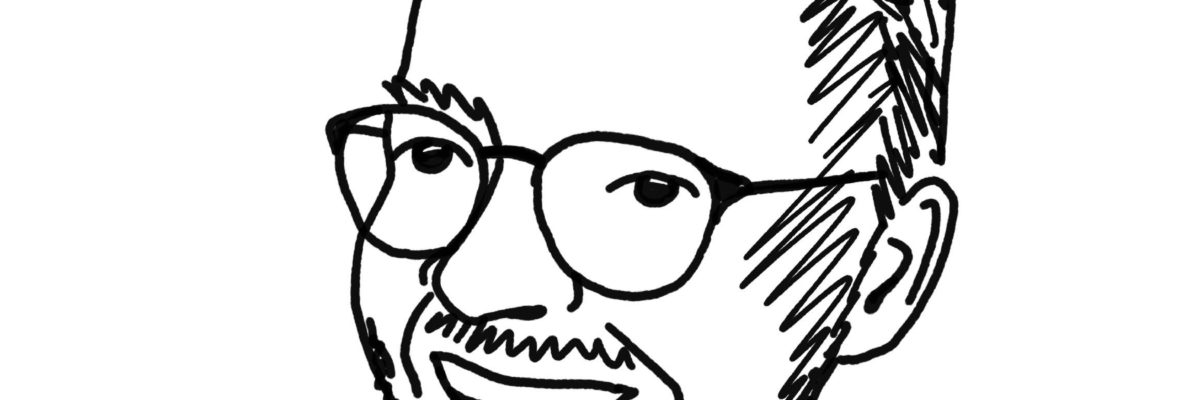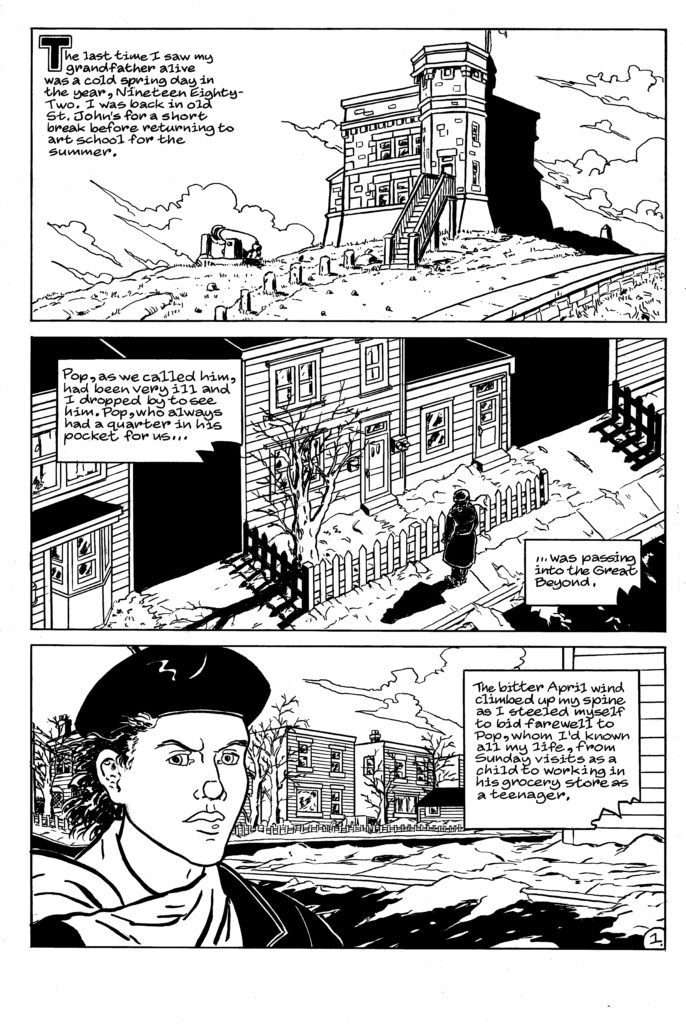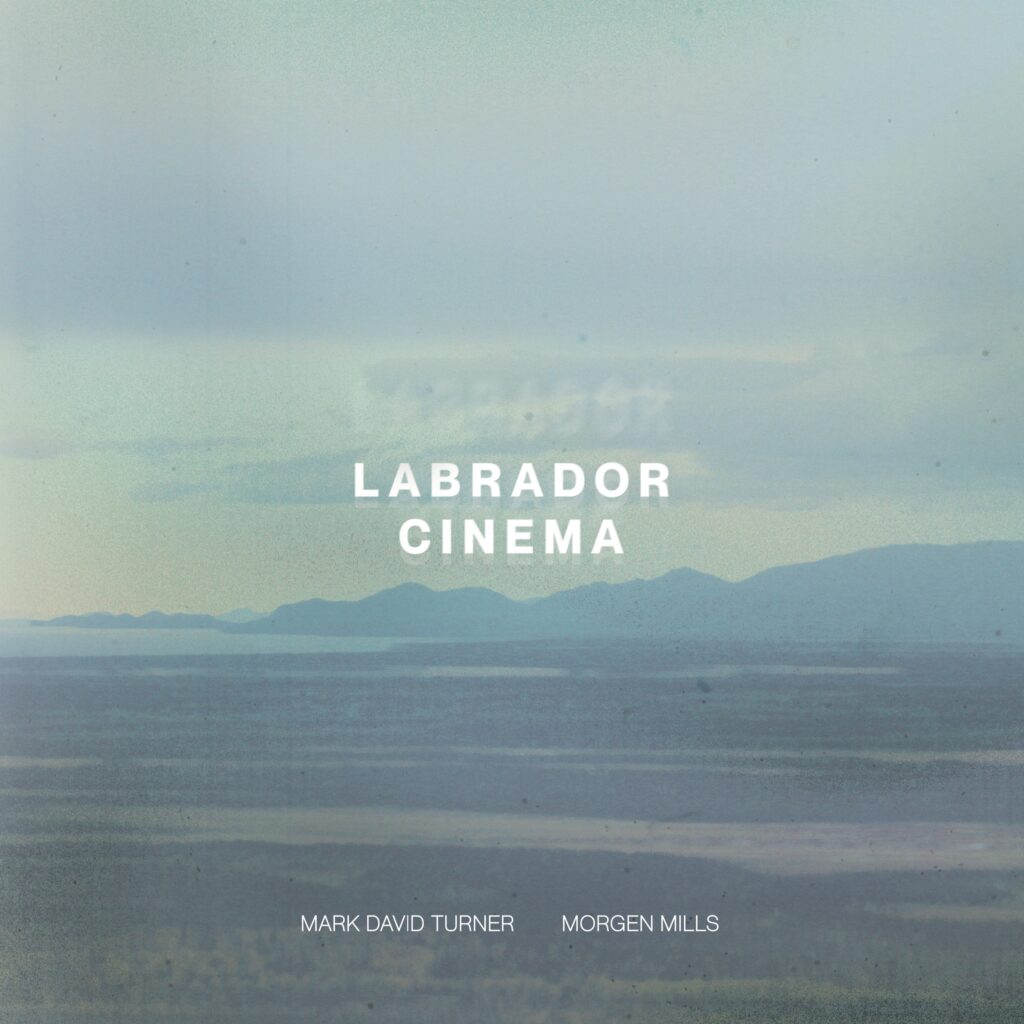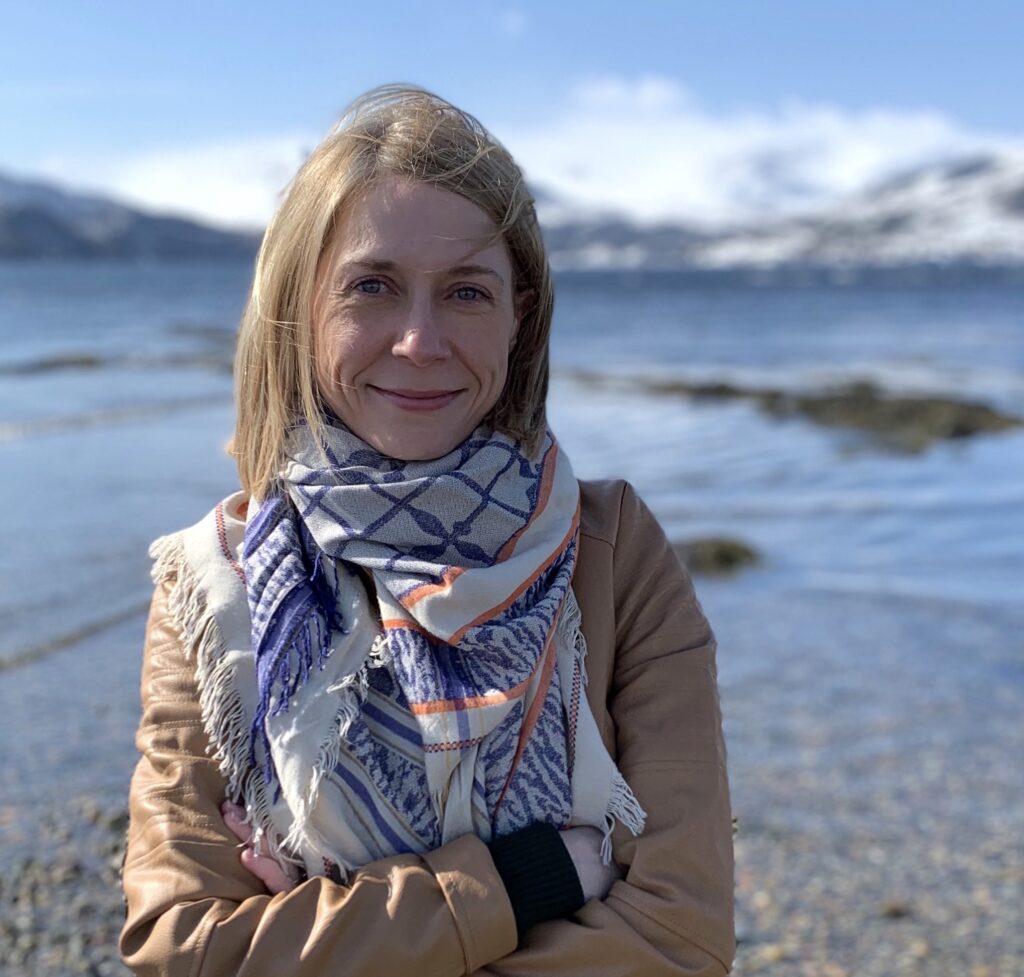Morgan’s novel debut: doodles, footnotes, & aspirational poetry
March 2020
Can you tell us a little about yourself?
Working backwards.
My first novel comes out on the feast day of St Isidore the Farmer (May 15), apocalypse notwithstanding: it’s called Dirty Birds. I hope everyone will read it. Although, the enthusiasm my mom’s book club has shown for it is a little unsettling and might get my mom kicked out because there is a bit of cursing and carrying on in the book. But it’s funny cursing and carrying on. Nothing gratuitous. I swear. In the meantime, I’m sitting in the sunroom of the 200-year-old farm house just outside Mabou, Cape Breton, that my wife and I moved into this past fall. I’m answering these questions with one eye and watching our 10-month-old daughter, Mary, chew on what’s left of a magazine with the other. She’s a voracious reader. I’ve lived in Cape Breton for nearly three years. My day job is with the Cape Breton Partnership, an economic development non-profit, but for the past 10 months I’ve been a full-time dad and a part-time writer, which has been pretty great.
Before that, I lived in St John’s for nearly a decade, working at MUN in the Office of Public Engagement, and before that the Harris Centre, and before that The Scope (RIP), and before that I did an MPhil at MUN. Before that I attempted, and failed, to become a famous poet in Montreal. Before that I attempted, and failed, to learn French in Northern Quebec. Before that I lived for a while in Prague. Before that I did a Canadian Studies degree at the University of Calgary. Before that I graduated high school from a tiny Catholic school in a tiny town the Central Alberta foothills. Before and during that I grew up on a small farm near a tiny village near the middle of nowhere in the Central Alberta foothills. The village for the longest time wasn’t known for much else than cowboys, and one particularly famous racist, but as I was growing up it came to be known more so for hockey players, and one particularly famous figure skater (Kurt Browning). Growing up on a farm (where you have to learn to do everything yourself), raised by super supportive and super crazy scheming parents, in an out of the way place with a few famous neighbours fills your head with all kinds of outrageous ideas like, sure, you can write a novel, nothing to it. Before that, I was born on a cold winter’s night, the middle child of the eldest daughter of a cat skinner and the youngest son of a truck driver, in January of 1983.
What was the inspiration for your first novel?
Dirty Birds is about a young whippersnapper named Milton Ontario from a middle-of-nowhere one-horse town called Bellybutton. Milton graduates with an Artistic Sciences Degree from the Polytechnic University of Saskatchewan (PUS) and moves to Montreal to meet his hero Leonard Cohen and become a famous poet. Hijinks ensue. I once was a young whippersnapper from a middle-of-nowhere one-horse town who graduated with a Canadian Studies Degree from the University of Calgary and moved to Montreal to meet my hero Leonard Cohen and become a famous poet. Hijinks ensued. So I borrowed a bit from real life to get me started, and then extrapolated. It’s not a memoir though, no one should care about my late-onset adolescent ditherings. But coming of age is different now than it was a long time ago when a lot of books I’ve read about coming of age were written. Everything’s been distorted and delayed by a lot of new and different social forces so we don’t grow up like they used to. Milton is basically a spunky redhead orphan but instead of being 13 he’s 23 and instead of Green Gables it’s the Plateau and instead of finding salvation in God and tea biscuits and a good husband (or whatever that book is about, it’s been a while), it’s trying to find salvation in heroes or art or fame or money or power or violence or, or, or a lot of places it isn’t anymore because things are different, and so how does someone navigate all of that and come out the other side a decent human and not a, to borrow a Newfoundland-ism, juice arse? And how, especially, do you do all that now that things are starting to change a little bit for a privileged as sin white cis dude who for ages has been given free reign to be as big of juice arse as they please while being allowed to run things without question? Not that white dudes aren’t still running around being juice arses and running the planet into the ground, just now there seem to be more questions being asked and the old ways we, as white dudes especially, made sense of the world and learned how to be in the world, don’t hold up anymore. Now what? So I wanted to ponder those questions, which are serious, but I pondered them in a very not very serious way. It’s a good time. Although, this was all before the world began to end and we all got locked in our houses for the rest of time. So I will rewrite this when the pandemic passes, about what’s left of us.
The settings – Saskatchewan, Montreal, St John’s – feel quite ‘lived in’. Is it a roman a clef?
A roman a clef, a bildungsroman, a picaresque – now that I’ve had a chance to Google all of those – yes, it certainly is. All of them. It’s a semi-autobiographical coming of age story about a delightful dumb ass. I’ve never lived in Saskatchewan, I grew up in a small prairie town in Alberta, but I have ancestors from the very place that Bellybutton is based on, and Saskatchewan lends itself much better to square and flat jokes. I did live a while in Montreal as a dithering poet. I did do time in hiding in grad school in Newfoundland. I did do a lot of things in the book. Some entire chapters are lifted almost verbatim from at-the-time blog entries I used to write, for some reason. So the book is very much based on my life – write what you know and all that – with a few departures, tangents, and elaborations for dramatic effect. For instance, Milton tries to exact revenge on a kid on his school bus for stealing his girl by unleashing some mutant super bed bugs on him, with horrendous results. I would never do that. I would just mope and harbour a grudge and exact revenge by writing a novel about it 20 years later. If something like that were ever to have happened. Just as a for instance.
What about the elements, the drawings and footnotes, were they always part of the narrative’s construction?
They were. The science behind it is very inexact. I don’t know many literary novels with illustrations and footnotes like I’ve used them, so I wasn’t able to steal anyone smarter than me’s ideas. But I have always found illustrations and asides (usually, or most easily, as footnotes) can add a lot to a story. They break up the monotony of just endless text, they can add humour (a map of Saskatchewan is just a rectangle, and that’s hilarious!), they can add context, they can add depth, and the pictures can also help to emphasis plot and theme. Not in a here is a picture of what happened way. Though you could do that, but I don’t. My pictures are more sloppy, hastily slapped together line drawings that are meant to look like amateurish technical drawings of mostly stuff or technical details from Milton’s life. A person’s stuff says a lot about them. Whatever is in your pockets or your bedroom or your locker at school says a lot more about you than a description of the exact shade of brown of your eyes. And that stuff changes, and how that stuff changes also tells a story. So you see as we learn about Milton there are more pictures, and then they thin out a bit as we go (trust me, I wanted there to be a picture on every other page, but publishers don’t really go for publishing 1,200 page picture books) but the things change in nature and tone. From BB guns to hand guns (spoiler alert!). And I think it is super compelling and always loved illustrated novels growing up, and really loved illustrations by the writers themselves. There’s a picture Kafka drew of a guy kind of splayed out in despair at his desk, and that is pretty much everything he ever wrote summed up in one doodle. Same with Vonnegut, I love Breakfast of Champions and it is full of doodles to often hilarious effect (and that’s the only other heavily illustrated grown up novel I could think of/find. If you know of any others, please let me know).
Speaking of elements, your lead character wants to be a poet. He tackles this goal with great passion, which perhaps outstrips his talent. How do you write good bad poetry?
It is a very precise craft that takes years and years of practice to perfect. There totally isn’t videos of a 23-year-old me, all angst and bad hair, reading nonsensical English poems about Nickleback at French open mics from 2007. There totally isn’t a defunct blog full of equally inane blatherings. There totally isn’t a certain literary journal from a certain major Canadian university that published my first ever work that totally wasn’t just a list of fonts from my computer passed off as some brilliant found poetry. There totally isn’t hazy memories of a horrendous Montreal Fringe Festival show made by an aspiring poet, stand-up comedian, death metal electronica musician, and jazz saxophonist. There totally isn’t any of that stuff. None of it exists. Don’t bother looking for it. This entire novel, all 115,000 words of it, is not at all an elaborate ruse to finally publish a collection of my horrible adultescent poetic yammerings. “Good bad poetry” (thank you by the way, I think), is totally not what I spent much too much of my formative writing years scribbling in dollar store notebooks. None of that ever happened. Most of the book is entirely true, but the poetry. I made that on a good bad poetry generator website. Yes, the billions government and industry is pouring into Artificial Intelligence has netted us an algorithm that writes poetry as bad as a 20something bumpkin high on cosmopolitan bohemianism. If that were such a thing that ever might of could happen but certainly never has, why would you ask?




